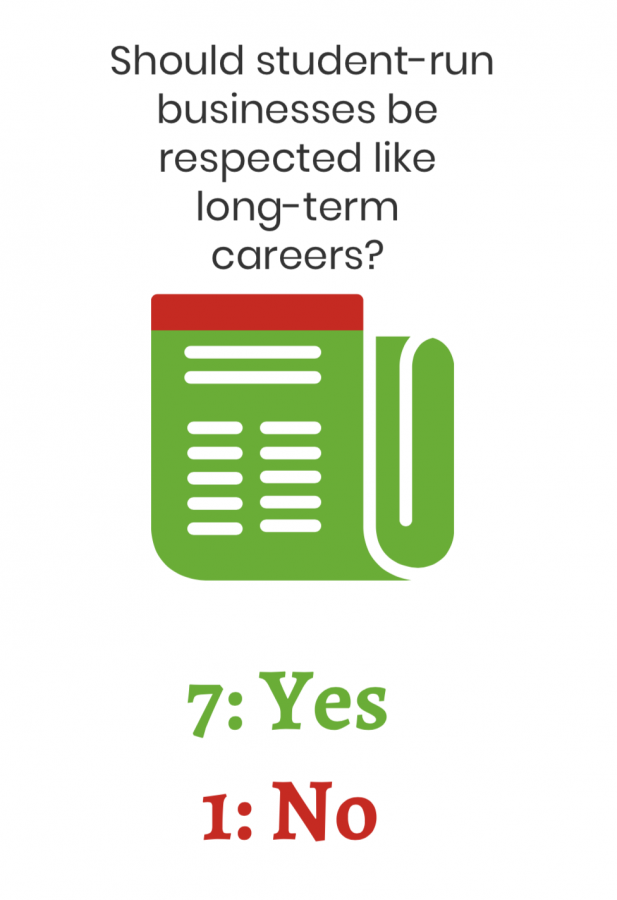Student hobbies have potential to open up job opportunities
October 3, 2018

As students, we hear it time and time again from our parents and mentors, “Absolutely nothing is stopping you.” The phrase gets thrown around in hopes of combating laziness, to push us further.
We are lucky enough to live in a country that provides endless resources to reach our full potential. However, there are some students who take it much further, taking a risk and potentially starting a career for themselves early [See pp. 22-23]. Instead of criticizing, perhaps we should celebrate young people brave enough to take a competitive world head on.
Many students decide to transform their artistic hobbies into part-time, paid occupations in high school. We see a variety of options, from photography to music to performing arts. Many times these students are traditionally taught, but some are self-taught and determined to excel, perfect examples of students who take their learning beyond the classroom. They harness their passion to create something that shapes their future. However, they are generally met with disapproval in an attempt to scare them away from failure.
Dismissing a high schooler that has a unique choice in occupation is easy to do and would even make sense, if we were living 20 years ago. When people did not have access to a world wide means of advertising, only a few could gather enough publicity to be successful.
In this ever-changing job climate, it has become possible for someone to be their own manager, educator and publicist. However, not everyone is willing to take that risk and this is why the ones who do should be met with admiration. For example, the Launch Fishers High School Fellowship works to support student entrepreneurs in the community and give them opportunities to grow within local businesses.
With the advancements in recent technology, the playing field in the job world has become much more even. The Pew Research Center found that as many as 10 percent of workers in the U.S. are self-employed, and as time continues, it would be reasonable to assume this would only increase along with the growth of technology.
Some might argue that students who make money off their passions steal from those who have a professional background in it. However, many of these professionals cannot provide their services at costs that everyone can afford. It would be unrealistic to expect them to since many join larger companies.
Students can provide these services for less because they lack something that all professionals have: experience. On top of that, they generally have less expensive equipment and do not have to function as a complete business.
In schools we learn to accept new ideas with enthusiasm. We teach that big ideas are not destined to fail; they just require more grit. The hard work will pay off.
As world-famous entrepreneur Steve Jobs advised, “sometimes life is going to hit you in the head with a brick. Don’t lose faith.” Student entrepreneurs may face many hardships, but we should not let our judgment be their barrier.

